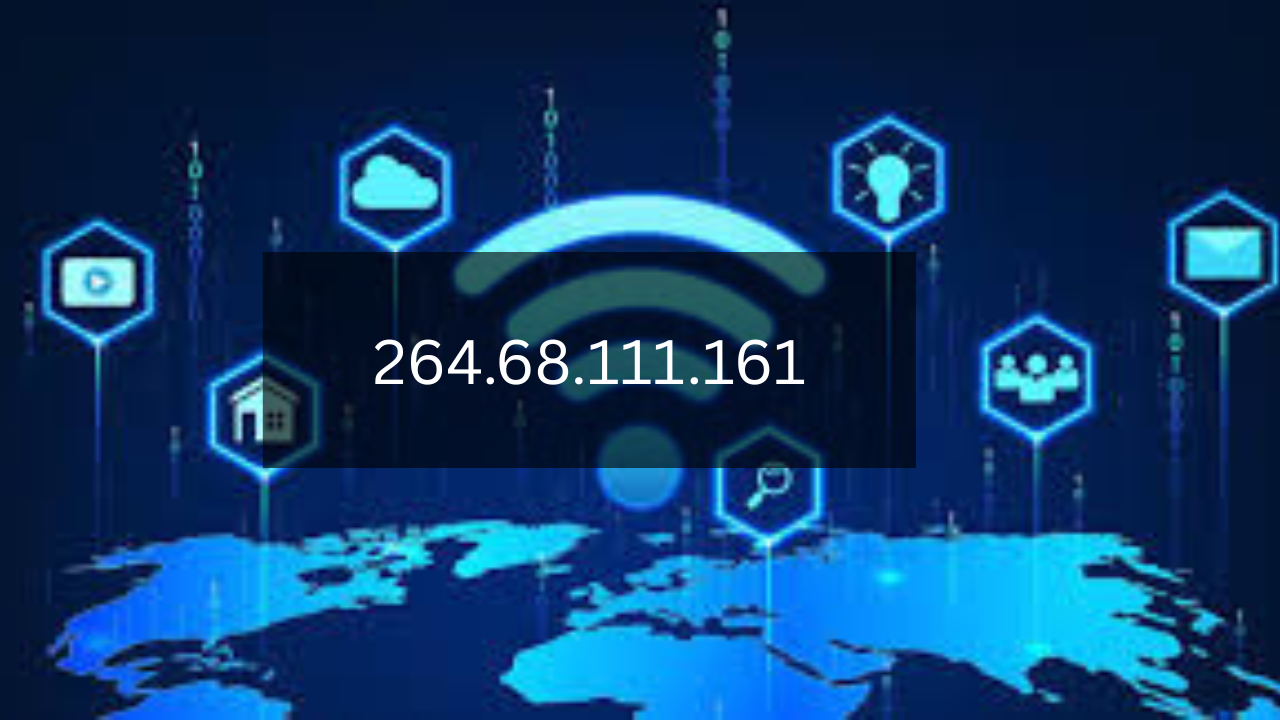Introduction
The digital world is built on a complex web of interactions, with IP addresses serving as the essential threads that connect us all. Every device you use online has its own unique identifier, allowing communication across networks and the internet. But have you ever stopped to think about what these numbers really mean? Today, we’re diving deep into one specific IP address: 264.68.111.161. Understanding this particular string of digits can shed light on how our devices communicate and why it matters for your privacy and security in the vast expanse of cyberspace. Whether you’re a tech novice or an experienced user, there’s something valuable here for everyone!
What is the Significance of IP Address 264.68.111.161?
The IP address 264.68.111.161 may not seem significant at first glance, but it holds potential in various contexts.
AD
For starters, every IP address identifies a unique device on the internet or a network, facilitating online communication and data exchange.
This particular address could be tied to specific geographical locations or services depending on its registration details.
Understanding this IP can also help troubleshoot connectivity issues or track down malicious activities that originate from it.
Moreover, businesses often analyze such addresses to gauge traffic patterns and user demographics more effectively.
In today’s digital landscape, knowing the significance of an IP like 264.68.111.161 empowers users to make informed decisions about their online interactions and security protocols.
How IP Addresses Work
IP addresses are essential for devices to communicate over the internet. Each device, whether a computer or smartphone, gets a unique identifier that allows it to send and receive data.
When you browse the web, your device requests information from servers. The server recognizes your IP address and knows where to send the requested data. This process happens in seconds.
There are two main types of IP addresses: IPv4 and IPv6. IPv4 is more common but has limited addresses available due to its shorter format. In contrast, IPv6 was introduced to accommodate the growing number of devices online.
Dynamic IPs change frequently, while static ones remain constant. Understanding how these addresses function can help users manage their online presence better.
The Importance of Maintaining Your IP Address
Maintaining your IP address is crucial for seamless online experiences. An unstable or frequently changing IP can disrupt access to websites and services you rely on daily.
A consistent IP address allows devices to communicate effectively within a network. This stability enhances performance, especially for applications like gaming and video streaming that demand low latency.
Moreover, businesses often require static IPs for remote work setups. Employees need reliable connections to access internal resources without interruptions.
Regularly monitoring your IP also helps in identifying potential security threats. Any unauthorized changes could indicate malicious activity targeting your network.
Keeping track of your IP contributes to better privacy management. Understanding its significance empowers you to take control over personal data exposure while browsing the web.
Common Misconceptions About IP Addresses
Many people have misconceptions about IP addresses that can lead to confusion. One common belief is that an IP address reveals a person’s exact location. While it can provide a general area, it’s not precise enough for pinpointing someone’s home.
Another myth is that changing your IP address will automatically enhance your online security. Although this might help in some ways, true protection involves more comprehensive measures like using a VPN or firewall.
Some users think static IPs are always better than dynamic ones. This isn’t true; each type has its advantages depending on the specific needs of users and businesses.
There’s the notion that all websites track you via your IP address. While many do collect this information, they often rely on cookies and other tracking methods as well. Understanding these nuances helps demystify how our digital interactions work.
Protecting Your Privacy with IP Address 264.68.111.161
Protecting your privacy online is crucial, and understanding how IP address 264.68.111.161 fits into that puzzle is essential. This specific IP can reveal various details about your location and internet service provider.
To safeguard your information, consider using a Virtual Private Network (VPN). A VPN masks your true IP address, providing anonymity while browsing the web.
Additionally, regularly updating your security settings can enhance your protection. Firewalls and antivirus software play significant roles in keeping unwanted intruders at bay.
Remember that data leaks are common on unsecured networks. When connected to public Wi-Fi, always be cautious with personal information to prevent exposure.
Utilizing tools like IP anonymizers can further obscure your digital footprint linked to 264.68.111.161, ensuring a safer online experience every time you connect.
Conclusion
Understanding your IP address is crucial in today’s digital world. The significance of 264.68.111.161 goes beyond just being a unique identifier for devices on the internet. It plays a vital role in how we connect, communicate, and protect our online privacy.
Maintaining your IP address allows you to navigate the web efficiently while minimizing potential disruptions or security breaches. Staying informed about common misconceptions can help demystify how IP addresses function and their implications for users.
As technology evolves, safeguarding your privacy becomes increasingly important. By understanding more about 264.68.111.161, you empower yourself to make better decisions regarding your online activities.
Embracing this knowledge means taking control of your digital presence and ensuring that you stay safe while exploring everything the internet offers.








